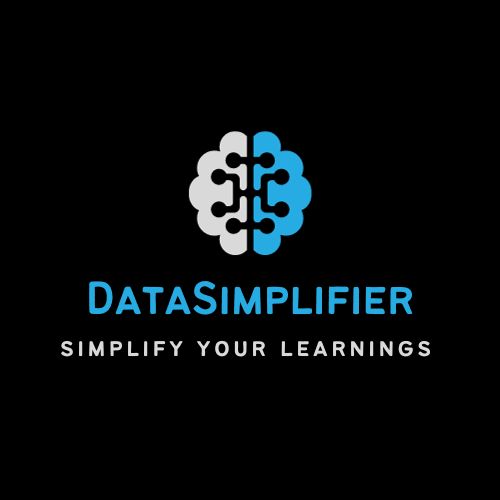Introduction:
Fast-paced industrial transformations by Artificial Intelligence leave one pondering a singular question: how does AI really affect the jobs? Be it a student preparing oneself for an AI career or working professional with aspirations to speed up in fields such as data science or finance, hence, understanding the type of job restructuring Artificial Intelligence is imposing would be quite critical. AI is not just some other technology trend; it’s changing how jobs are executed and how an industry works.

A few years ago, we saw the adoption of AI across almost every sector-from manufacturing to healthcare, and financial services were no exception. That however has not happened without its discomforts. For every efficiency and opportunity Artificial Intelligence brings to the table, it brings to the forefront loss of jobs and displacement of current jobs. One of the most talking points today relates to the fear of machines replacing human workers. How, then, does this affect job availability and job security? Most importantly, though, is what students and professionals can do to get a head in these changes.
In this blog post, we discuss how AI has affected jobs so far, how it is going to affect the job market going forward, and what you can do to protect your career. Be concerned about the influence of Artificial Intelligence on finance jobs or interested in knowing which kinds of jobs Artificial Intelligence are going to most affect-this is the ultimate guide to a hang of the extreme changes Artificial Intelligence is inflicting on work.
I. How Artificial Intelligence Has Changed the Character of Work: Lessons from the Past
Artificial Intelligence is not a recent innovation. Even though its current application is highly groundbreaking, It has been transforming jobs for decades. In what ways did AI transform jobs in the early years? Initially, Artificial Intelligence and machine learning applied automation only to repetitive, manual tasks in industries such as manufacturing and retail. However, with the increasing maturity of AI, the tasks it performed and took over became progressively more complex, shifting from finance and other healthcare-related sectors where human judgment came into the picture.
Examples:
There were fewer entry-level analyst jobs because Artificial Intelligence algorithms were doing the data analysis, fraud detection, and even stock market predictions in the finance sector.
Chatbots, which are Artificial Intelligence tools in customer service, have taken over many of the call center workers’ jobs in the many different industries.
These early changes were just the beginning. Today, Artificial Intelligence can do much more, and the effects on jobs are much more pervasive and complex.
II. Artificial Intelligence’s Negative Impact on Jobs: The Dark Side of Automation
Artificial Intelligence does bring about efficiency, but it takes the job off people. The biggest worry is about how it will take away jobs that are repetitive or routine. What impact does it have on job replacement? Many jobs that are predictable in nature—that is, jobs that are undertaken for assembly line work, data entry, and customer support are at a risk of getting automated. It naturally is a result in most cases by taking away jobs from the people involved. That is mainly because they do not have the set of skills to transfer into new ones.
Statistics: According to various studies, it is probable that by 2030, many million jobs worldwide will lose out to automation happening through Artificial Intelligence. This effect would significantly burden developing economies like India.
Indian context: The impact would be felt enormously in the IT and BPO sectors. A large amount of entry-level jobs would disappear completely with the use of Artificial Intelligence in the automation of numerous routine tasks.
For example, in the information technology area, testing for software or data entry and basic coding jobs are becoming obsolete through Artificial Intelligence commissioned tools. The translation is in terms of being either unemployed or upskilled workers in the industry. In the BPO area, there is going to be a huge layoff event as BPOs function as a significant source of employment because these-based live chatbots and virtual assistants replace human clients service providers.
III. Artificial Intelligence and the Future of Work: What’s in Store?
How will the it change work? But it’s not only killing jobs; it’s also giving birth to new ones. Some jobs will fall into obsolescence, while new branches of Artificial Intelligence development, data science, or machine learning will emerge. To learn and prepare for the future, the crux lies in learning how to coexist with Artificial Intelligence rather than be replaced by it.

New Jobs in Artificial Intelligence & Data Science: It is putting new demands on professionals in fields such as machine learning, data analysis, and Artificial Intelligence ethics. There is therefore not only great promise in India but also the world for those getting ready for these fields. For example, jobs like AI model trainers, data scientists, and Artificial Intelligence ethics consultants are highly in demand and increasing in numbers.
Reskilling and Up-skilling : The way forward in an AI-driven job market is to keep learning and upgrading. It can be done through online courses, certifications, and advanced degrees. For example, the knowledge of how AI works in finance or the application of Artificial Intelligence in data science will open new doors. Excellent courses on Artificial Intelligence and machine learning are offered by Coursera, edX, among others, many of which are affordable and even free.
Industries of the Future: In the future, AI will define jobs in industries spanning health and education to transportation and finance. For instance, how will Artificial Intelligence change the character of work in the financial industry? Artificial Intelligence is transforming financial services -be it automated trading and customized banking solutions, to name a couple-but it also cuts quite a bit of more traditional jobs in financial analysis and customer service. In healthcare, Artificial Intelligence is a boon to improving diagnostic and treatment possibilities but may eliminate some of the more administrative roles.
IV. Negative Impact of Artificial Intelligence on Labor Market: Unemployment and Security
A question nobody has been, of course, is, how will Artificial Intelligence affect the labor market? The key impact is in respect to job security. That the more complex AI is, the more it can achieve the kind of works hitherto reserved for humans, which means jobs in specific areas become far fewer. What does this mean for workers’ security? The increasing automation of tasks is likely to shift many regular, low-skilled jobs into the ranks of the long-term unemployed unless workers find a way to retrain for new careers.
Job Displacement in India: Here, India is viewed most vulnerable to Artificial Intelligence-driven automation in the IT and customer service sectors. Routine customer interaction, data processing jobs, and even testing software stand endangered. Does Artificial Intelligence enhance job displacement? One may become jobless unless skills acquire emerging technologies such as machine learning, data analytics, or blockchain.
Job Loss vs. Job creation: While Artificial Intelligence will lead to loss of jobs in certain streams, it is very important to note that new job opportunities will be enhanced. The new job functions are designed to be different, mainly concerning Artificial Intelligence development, data management, and human-Artificial Intelligence collaboration. For example, the World Economic Forum suggests that AI will create a world of 97 million new jobs by 2025. The jobs include data science, Artificial Intelligence engineering, and robotics, among others.
Real-World Example – Manufacturing: In manufacturing, Artificial Intelligence-powered robotics change the nature of the production. For example, traditionally used assembly line workers are being replaced by Artificial Intelligence driven machines, which can work much faster and efficiently. Already in India, big automobile manufacturers are investing in Artificial Intelligence technologies to optimize production lines. How does AI negativity impact jobs in these situations? Efficiency in turn means less scope for labor and a greater loss in terms of employment.
V. How it Will Impact Jobs in Certain Sectors
While it is transforming every sector, let us see a few sectors where the impact is more significant in India:
- Finance :
Customer Service: Artificial Intelligence will dramatically change the customer service side of finance. Already, customers check their balance and history with an AI assistant for answers to most routine inquiries that banks use human entry-level customer services staff for today.
New Opportunities in FinTech: On the other hand, FinTech (Financial Technology) has opened up new careers. Artificial Intelligence is behind innovations such as mobile banking, personalized financial advice, and blockchain technology. There is a huge opportunity for professionals with a finance and Artificial Intelligence background to work in the areas of Artificial Intelligence algorithm development, blockchain implementation, and cybersecurity in finance. - Healthcare:
It is revolutionizing healthcare globally and in India, with significant effects on the job market. How does this affect jobs in healthcare? Obviously, while Artificial Intelligence makes healthcare more efficient and accessible, it reduces the need for certain administrative roles as well.
Artificial Intelligence in Diagnostics: These algorithms help doctors detect diseases early and accurately. It can now be studied through medical images like X-rays and MRIs by an Artificial Intelligence algorithm where certain anomalies that the human eye may miss are studied. Rapid diagnoses lead to a potential saving of lives but the considerable reduction in the need for many radiologists just because it takes over a part of their work.
Artificial Intelligence in Drug Discovery: Artificial Intelligence speeds up the process of drug discovery, sifting through large amounts of data to identify potential drug candidates. The result was a reduction in the demand for a purely trial-and-error approach, which was incredibly time-consuming. While this can save time, roles would be reduced that typically would belong to laboratory technicians and research assistants.
Administrative Careers: As hospitals and clinics are transformed into Artificial Intelligence-driven administrative systems, most of the clerical work, such as medical billing and scheduling, will be replaced by machines. Though these changes will result in a loss of some jobs, the same AI system will also make room for professionals to maintain and implement these Artificial Intelligence systems.
- Manufacturing:
The use of AI is increasing automation to unprecedented levels in manufacturing. How is AI impacting jobs in manufacturing? Artificial Intelligence has made machines and robotics take over repetitive work initially done by humans, with more efficiency but at a large cost of jobs displacement.”.
There are the robotics and automations: the kind of Artificial Intelligence-driven robots that can now be performing complex jobs, from welding and painting to final packaging and then quality control, and have left workers idle in those roles. This may well raise productivity but lower the need for human workers in that role. Indian manufacturing is of tremendous importance; this could bring job losses unless workers are reskilled in “robot maintenance and management of AI systems.”.
Predictive Maintenance: AI is also in use in the industrial sector for predictive maintenance. Through AI algorithms, a machine can be forecasted when it will most probably break down and scheduled in advance for maintenance before a critical failure or breakdown happens. This reduces shut-down time; however human maintenance workers are then not as essential. However, this does unlock new opportunities for Artificial Intelligencetechnicians who can oversee such predictive systems.
- Education:
Artificial Intelligence also hits the educational sector with all its might, especially about delivering learning and making it more personal in nature. What kind of impact does the introduction of AI have on education jobs? Well, Artificial Intelligence may allow for much better enriching learning experiences, but this is in conflict with eliminating the teachers’ jobs or jobs for school administrators.

The use of Artificial Intelligenceenabled technology has now made it possible to provide learning paths tailored to individual students. Artificial Intelligence helps in learning lessons customized to each student’s learning style by analyzing how they interact with educational content. While such customized learning experiences improve, it might lead to a decline in the demand for traditional teaching roles, especially tutoring.
Administrative Automation: This includes the grading of students, tracking attendance, and even admissions, which is automated using Artificial Intelligence, reducing administrative staff in schools and universities but giving an opportunity for development and maintenance to Artificial Intelligence specialists.
Artificial Intelligence in EdTech: The dawn of EdTech (Education Technology) has thrown open many a career opportunities for professionals who can create and deploy AI-driven learning platforms. From AI-based tutoring apps to virtual classrooms, the demand for EdTech professionals is on an increase, opening a new window for students and professionals interested in education as well as Artificial Intelligence.
VI. Ahead of the Curve: Actionable Insight for Students and Professionals
- Upskill and Reskill:
To be relevant in the marketplace, one has to update his or her skills day after day. Whether you are a student or a professional, take courses in Artificial Intelligence, machine learning, data science, or other evolving subjects. You can find numerous courses available on Coursera, edX, and Udemy, all taught by industry leaders and top-notch universities.
Focus: Artificial Intelligence-related skills: Learn the major programming languages like Python and R. These are commonly used in Artificial Intelligence as well as in data science. Learn the major tools of AI like TensorFlow, Keras, and PyTorch to enhance technical skills.
Data Analytics: Artificial Intelligence works mainly on data, therefore it is quintessential to also learn how to perform data analytics and managing big data becomes fundamentally important. Data, in this sense, is the new age fuel that feeds AI, and people who could manage, analyze and make sense of large datasets would become of tremendous value.
- Lifelong Learning:
Artificial Intelligence is an evolution field, therefore, the skills you learn today may be obsolete in a few years. Have the mindset to be a lifelong learner. Ask questions and be eager to learn new technologies whenever these are developed.
Join Artificial Intelligence Communities: Membership in an Artificial Intelligence community guarantees you learning about the new developments and changes. You can join AI-related meetups, forums, and groups on LinkedIn or Telegram. This will keep you connected with other people in the field and in touch with new AI developments.
Certifications and Specializations: Obtain recognized certifications in Artificial Intelligence and machine learning, namely Google Artificial Intelligence or Microsoft Artificial Intelligence Engineer. These will also add polish to your resume but give you the necessary credentials for standing out in a crowded job market.

- Soft Skills Focus
The more routine tasks are absorbed by Artificial Intelligence, the more demand will arise for roles which require soft skills including creativity, emotional intelligence, problem-solving, and leadership. Artificial Intelligence may be great at work automation, but there is nothing better than humanity’s ability to empathize, innovate, and lead teams.
Human-AI Collaboration: The future workplace would be more collaborative in nature-work with humans and Artificial Intelligence systems. Understanding how to work with AI, manage projects driven by AI, or make strategic decisions based on AI-driven insights would one of the major skills in the future.
- Exploration of new career paths in emerging fields:
It is not just about job losses; it is also about jobs creation. Because of its growth, new and exciting fields are emerging. Think about working in the field of robotics, AI ethics, cybersecurity, FinTech, or EdTech.
As AI becomes more and more integrated into the everyday life of society, much concern emerges about bias, privacy, and transparency. There is an increasing call for professionals who understand both AI and ethics to ensure that AI is not only developed but also used responsibly.
AI in Cybersecurity: With the development of AI, there is also a change in the cyberattack. Because of the development of AI in dealing with cyber threats, there’s a constant rise in demand for AI-driven solutions against cyber threats, which create new job opportunities for professionals skilled in both AI and cybersecurity.
Fast as the world of work is changing, much of that change is being led by AI. Losing and displacing jobs are concerns, but there are more endless opportunities open to those who prepare to adapt, learn, and grow. Whatever the future of jobs might look like, this one thing is clear: those embracing Artificial Intelligence who have the skills to complement it will thrive in the new job landscape.
Conclusion
And if you are a student or a professional in the Artificial Intelligence sphere, the time to start building up your expertise to be relevant in this field is now. There is a hundred ways to future-proof your career whether you learn the latest Artificial Intelligence technologies or understand how it reshapes industries like finance or healthcare or develop soft skills that even machines cannot relate to.
Join Our Telegram Channels: If you want to continue with your quest to know the latest trends in Artificial Intelligence, ML, and data science job opportunities or learning resources, join our exclusive Telegram channels. We have more than 10 niche-focused channels, where we regularly post job notifications, industry insights, and much more.
Get Access to Our Exclusive Community: You made it through the article! As a reward, comment below your Telegram handle, and we’ll send you an invitation to our exclusive premium Telegram community. It is composed of Artificial Intelligence experts, students, and industry professionals working together and linking each other and helping one another grow. The best part? It’s 100% free to any individual who interacts with our content!
Data Science or AI/ML: Which 1 is Best for Your Dream Job?


1 thought on “6 Powerful Impacts of AI on the Job Market You Need to Know”